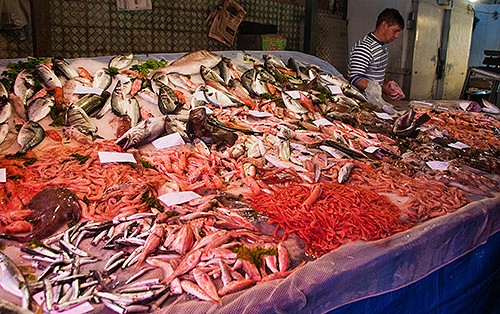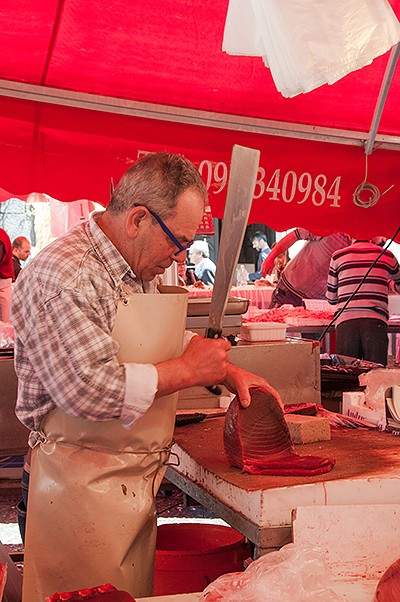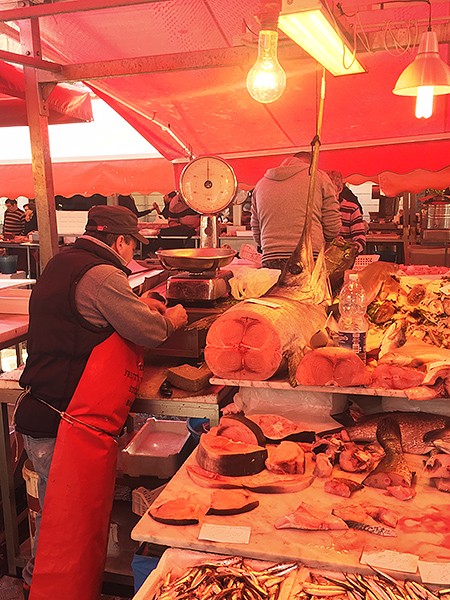Is it polite to refuse offers of corn wine in Vietnam, and if so, how can you do it respectfully? This is a common question for tourists exploring Vietnamese culture. SIXT.VN offers practical tips on navigating cultural nuances related to corn wine, ensuring a smooth and enjoyable travel experience. Learn about cultural sensitivity, travel etiquette, and respectful refusal techniques.
1. Understanding Corn Wine Culture in Vietnam
Corn wine, or “rượu ngô” in Vietnamese, holds a significant place in the cultural tapestry of Vietnam, especially among ethnic minority groups in the northern mountainous regions. Its production and consumption are intertwined with traditions, social gatherings, and hospitality. Understanding the cultural significance of corn wine is the first step to navigating offers respectfully.
1.1. The Cultural Significance of Rượu Ngô
Rượu ngô is more than just a beverage; it is a symbol of community, celebration, and respect. Often homemade, the process of making corn wine is a labor of love, passed down through generations.
- Hospitality: Offering rượu ngô is a sign of welcome and friendship. Refusing it outright can be seen as a rejection of the host’s generosity.
- Community Bonding: Corn wine is frequently consumed during festivals, ceremonies, and communal gatherings, reinforcing social bonds.
- Tradition: The tradition of making and drinking corn wine is deeply rooted in the customs of ethnic minority groups such as the Hmong, Dao, and Thai.
1.2. Regional Variations and Customs
The customs surrounding corn wine can vary from region to region and among different ethnic groups. For instance, in some areas, it is customary to drink rượu cần (wine drunk through straws from a communal jar) during special occasions. Knowing these variations can help you tailor your response appropriately.
- Rượu Cần: This type of corn wine is typically shared among a group, symbolizing unity and togetherness.
- Drinking Etiquette: In certain communities, there are specific protocols for toasting and drinking, such as holding the glass with both hands to show respect.
2. Is It Polite to Refuse Corn Wine?
The short answer is yes, it is usually acceptable to refuse corn wine, but how you do it is crucial. An outright refusal without explanation can be considered impolite. The key is to decline in a manner that shows respect for the host and their traditions.
2.1. Situations Where Refusal Is Acceptable
There are several valid reasons why you might need to refuse an offer of corn wine. Understanding these can help you feel more confident in your decision.
- Health Reasons: If you have health conditions or are taking medication that prohibits alcohol consumption, it is perfectly acceptable to decline.
- Personal Preference: Not everyone enjoys the taste or effects of alcohol. It is your right to abstain.
- Religious Beliefs: Some religions forbid the consumption of alcohol, and this should be respected.
- Professional Obligations: If you are working or need to remain alert and sober, refusing alcohol is understandable.
2.2. Potential Offenses of Refusal
Understanding why a refusal might be taken negatively can help you avoid causing unintentional offense.
- Perception of Disrespect: In cultures where hospitality is highly valued, refusing a gift or offer can be seen as disrespectful.
- Misinterpretation of Intent: Your refusal might be misinterpreted as a rejection of the host’s kindness or an unwillingness to participate in cultural exchange.
3. How to Politely Refuse Corn Wine
The art of refusing corn wine lies in balancing your personal needs with cultural sensitivity. Here are some strategies for declining politely.
3.1. Verbal Refusal Techniques
Using the right words can make a big difference in how your refusal is received.
- Express Gratitude: Start by thanking the host for their generosity. For example, “Thank you so much for offering, it’s very kind of you.”
- Offer a Reason: Provide a brief, polite explanation for your refusal. “I’m not able to drink alcohol right now for health reasons.”
- Compliment the Wine: Acknowledge the quality or tradition of the wine. “I’ve heard rượu ngô is a very special drink in this region.”
- Suggest an Alternative: If possible, suggest an alternative beverage. “I would love some tea or water instead.”
3.2. Non-Verbal Communication
Your body language and demeanor can reinforce your verbal message and show respect.
- Smile and Maintain Eye Contact: Show that you appreciate the offer, even if you can’t accept it.
- Use Polite Gestures: Bowing slightly or using a respectful hand gesture can convey sincerity.
- Engage in Conversation: Show interest in the culture and the occasion, even if you are not drinking.
3.3. Offering Alternatives
Suggesting alternatives can show that you appreciate the gesture and are willing to participate in other ways.
- Offer to Toast with Water or Tea: This allows you to participate in the ritual without consuming alcohol.
- Suggest Sharing Food: Offer to share a dish or contribute to the meal.
- Engage in Other Activities: Participate in conversations, games, or dances to show your involvement.
 Corn Wine Making
Corn Wine Making
4. Cultural Nuances and Etiquette
Understanding the finer points of Vietnamese etiquette can help you navigate social situations with grace and respect.
4.1. Understanding “Saving Face”
“Saving face” is a crucial concept in many Asian cultures, including Vietnam. It refers to maintaining dignity and avoiding embarrassment for oneself and others.
- Avoid Direct Refusal: A direct, blunt refusal can cause the host to lose face.
- Be Tactful: Phrase your refusal in a way that minimizes any potential embarrassment.
- Show Respect Publicly: If you must refuse, do so discreetly and respectfully, avoiding any public displays of rejection.
4.2. Specific Phrases to Use (and Avoid)
Knowing a few key phrases in Vietnamese can be helpful, but it’s also important to know what to avoid.
- Useful Phrases:
- “Cảm ơn rất nhiều” (Thank you very much)
- “Tôi không uống được rượu” (I can’t drink alcohol)
- “Tôi xin phép uống trà” (I would like to drink tea)
- Phrases to Avoid:
- “Không, tôi không thích” (No, I don’t like it) – This can be seen as rude.
- Any dismissive or condescending language.
4.3. Customs in Different Ethnic Minority Groups
Different ethnic minority groups may have unique customs related to corn wine. Researching these customs can help you avoid misunderstandings.
- Hmong: The Hmong people often use corn wine in rituals and celebrations.
- Dao: The Dao community has specific toasting rituals during festivals.
- Thai: The Thai ethnic group often drinks rượu cần during communal gatherings.
5. Practical Scenarios and Responses
Let’s explore some common scenarios and how to respond politely.
5.1. Scenario 1: Being Offered Corn Wine at a Village Feast
Imagine you are invited to a feast in a remote village. Corn wine is offered as a sign of welcome.
- Polite Response: “Cảm ơn rất nhiều! Rượu ngô của các bạn trông rất ngon. Hôm nay tôi không được khỏe lắm, nên tôi xin phép chỉ nhấp một chút thôi.” (Thank you so much! Your corn wine looks delicious. I’m not feeling well today, so I’ll just take a small sip.)
- Explanation: This shows gratitude and provides a reason for not drinking much.
5.2. Scenario 2: Refusing Multiple Toasts
You’ve accepted a small amount of corn wine, but your host keeps offering more toasts.
- Polite Response: “Tôi rất vui vì được tham gia cùng mọi người. Tuy nhiên, tôi cần giữ sức để ngày mai còn đi thăm thú nữa. Tôi xin phép uống trà nhé.” (I’m very happy to join everyone. However, I need to rest for sightseeing tomorrow. May I have some tea instead?)
- Explanation: This is a polite way to set a boundary without offending your host.
5.3. Scenario 3: You Have a Health Condition
You have a medical condition that prevents you from drinking alcohol.
- Polite Response: “Cảm ơn vì lòng hiếu khách của bạn. Tiếc là tôi có bệnh nên không thể uống rượu được. Tôi có thể uống nước lọc được không ạ?” (Thank you for your hospitality. Unfortunately, I have a medical condition that prevents me from drinking alcohol. May I have some water instead?)
- Explanation: This provides a clear and valid reason for refusing.
 Local Market in Vietnam
Local Market in Vietnam
6. The Role of Tourism Companies Like SIXT.VN
Tourism companies play a crucial role in educating travelers about cultural nuances and providing support for navigating unfamiliar situations.
6.1. Pre-Trip Cultural Sensitivity Training
SIXT.VN can offer pre-trip briefings or resources on Vietnamese culture, including etiquette related to food and drink.
- Cultural Guides: Providing guides on local customs and traditions.
- Language Support: Offering basic Vietnamese phrases for polite interactions.
- Dos and Don’ts: Outlining appropriate and inappropriate behaviors in various social settings.
6.2. On-the-Ground Support
Having local support can be invaluable when facing cultural challenges.
- Tour Guides: Guides can help explain customs and mediate interactions with locals.
- Translation Services: Providing translation assistance when needed.
- Emergency Assistance: Offering support in case of misunderstandings or emergencies.
6.3. Promoting Responsible Tourism
SIXT.VN promotes responsible tourism by encouraging travelers to respect local customs and traditions.
- Supporting Local Communities: Encouraging travelers to engage in activities that benefit local communities.
- Respecting Cultural Norms: Educating travelers on how to behave respectfully in cultural settings.
- Sustainable Practices: Promoting environmentally friendly tourism practices.
7. Additional Tips for Travelers in Vietnam
Here are some extra tips to help you navigate your travels in Vietnam smoothly.
7.1. Researching Local Customs
Before you travel, take the time to learn about the local customs and traditions of the regions you plan to visit.
- Online Resources: Use websites and forums to gather information.
- Travel Guides: Consult travel guides for insights into cultural norms.
- Cultural Experts: Speak with people who have experience traveling in Vietnam.
7.2. Learning Basic Vietnamese Phrases
Knowing a few basic phrases can go a long way in showing respect and making interactions easier.
- Greetings: Learn how to say hello, thank you, and goodbye.
- Polite Requests: Know how to ask for things politely.
- Basic Questions: Be able to ask simple questions like “Where is…?” or “How much does it cost?”
7.3. Being Open-Minded and Respectful
Approach new experiences with an open mind and a willingness to learn.
- Embrace Differences: Appreciate the unique aspects of Vietnamese culture.
- Avoid Judgment: Refrain from judging or criticizing local customs.
- Show Curiosity: Ask questions and express interest in learning more.
 Seafood Market
Seafood Market
8. Legal and Health Considerations
Understanding the legal aspects of alcohol consumption and being aware of health considerations are important for responsible travel.
8.1. Legal Drinking Age and Regulations
In Vietnam, the legal drinking age is 18. Be aware of local regulations regarding alcohol consumption in public places.
- Age Verification: Establishments may require proof of age.
- Public Consumption: Be mindful of where you are allowed to drink alcohol.
- Driving Under the Influence: Never drink and drive.
8.2. Health Precautions
Be aware of potential health risks associated with consuming homemade alcohol.
- Source of Alcohol: Only consume alcohol from reputable sources.
- Moderation: Drink in moderation to avoid health problems.
- Hydration: Stay hydrated by drinking plenty of water.
8.3. Medical Advice
If you have any health concerns, consult with your doctor before traveling.
- Vaccinations: Ensure you have all necessary vaccinations.
- Medications: Bring any necessary medications with you.
- Travel Insurance: Purchase travel insurance that covers medical emergencies.
9. Conclusion: Enjoying Vietnamese Hospitality Responsibly
Navigating cultural customs around corn wine can be a delicate balance, but with the right approach, you can enjoy Vietnamese hospitality while respecting your personal boundaries. Remember to be polite, respectful, and open-minded. With the support of companies like SIXT.VN, you can confidently explore the rich culture of Vietnam, including Hanoi tourism and travel, ensuring a memorable and enjoyable trip. Learn more about Hanoi travel tips, Hanoi tours, and travel consultation at SIXT.VN.
10. Frequently Asked Questions (FAQs)
Here are some frequently asked questions about refusing offers of corn wine in Vietnam.
10.1. Is it always rude to refuse corn wine?
No, it’s not always rude, but the way you refuse matters. Always express gratitude and offer a polite reason.
10.2. What if I am allergic to alcohol?
Clearly state your allergy. Most people will understand and respect your health concerns.
10.3. Can I offer to drink something else instead?
Yes, offering to drink tea or water is a good alternative that shows you are willing to participate in the social occasion.
10.4. How can SIXT.VN help me with cultural etiquette?
SIXT.VN provides pre-trip information, on-the-ground support, and cultural sensitivity training to help you navigate local customs.
10.5. What should I do if I accidentally offend someone?
Apologize sincerely and explain that you did not intend to cause offense. Showing humility can often smooth over misunderstandings.
10.6. Are there any regions in Vietnam where refusing corn wine is particularly offensive?
In remote, rural areas where traditions are deeply ingrained, refusing without a good reason might be more sensitive.
10.7. What are some other cultural faux pas to avoid in Vietnam?
Avoid pointing your feet at people, touching someone’s head, and speaking loudly in temples or pagodas.
10.8. How can I learn more about Vietnamese culture before my trip?
Read books, watch documentaries, and consult travel guides. Websites like TripAdvisor and SIXT.VN offer valuable insights.
10.9. Is it acceptable to pour my own drink if corn wine is offered communally?
In some settings, it’s polite to wait for the host to pour for you, as it shows respect for their hospitality.
10.10. What if I am a solo female traveler?
As a solo female traveler, it’s especially important to be cautious. Politely decline if you feel uncomfortable and trust your instincts.
Address: 260 Cau Giay, Hanoi, Vietnam. Hotline/Whatsapp: +84 986 244 358. Website: SIXT.VN.



